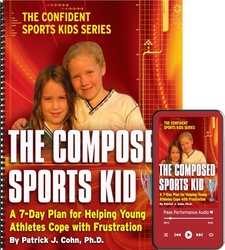
Nobody Likes it When Coaches Yell at Them.
Coaches should treat their athletes with respect.
Unfortunately, events don’t always unfold as we would like.
Coaches who yell feel as if it is a wake-up call and the best way to deliver feedback or instructions. Most of these coaches have no idea how to communicate effectively. They may not be aware of how they affect young athletes.
When coaches yell, athletes lose confidence, worry about making mistakes and lose interest in their sport. In some cases, kids’ self-esteem takes a hit and they end up believing, “I’m not good enough,” “I’m a disappointment,” or “I’m a failure.”
Many times, these athletes quit because they no longer enjoy competing. While kids can’t control how their coaches give instruction, there are ways to minimize the negative impact and even help kids improve their performance.
When coaches yell at them, young athletes will:
- Shut down: Many athletes shut down when coaches yell. It doesn’t matter if the coach has insightful information to build their game. For these athletes, shutting down is an automatic response to the chaos. Shutting down means kids build an invisible wall around themselves. While it may block out some noise, it prevents athletes from dealing with their feelings or improving their game.
- Take it personally. Some athletes only hear the tone. No matter what the coach says, it is drowned out by the yelling. Kids will interpret the loud and negative tone as if there is something wrong with them.
- Find the message. Some athletes separate the message from the tone. They still aren’t okay with the tone, but they extract what can help their game and discard the rest. This enables these athletes to protect their confidence, sift through the shouting and find information they can apply to elevate their game.
If their coach is just ranting, these kids chalk it up to the coach having a personal issue. They know it’s inappropriate for coaches to subject them to yelling, but they try to avoid allowing it to affect them negatively or lessen how they think about themselves.
If a sport is important to a young athlete, they shouldn’t let anyone don’t steal their joy. Instead, they should look for the message and stay committed to their game.
In Game 2 of the NBA playoff series between the Los Angeles Lakers and the Minnesota Timberwolves, Lakers coach JJ Redick became livid early in the second quarter.
Redick called a timeout and was angry with his team for allowing an 8-4 run to open the second and cut the Lakers’ lead to 11. Redick didn’t hold back during the timeout.
After the game, Los Angeles Laker LeBron James commented on Redick’s outburst and the importance of separating the message from the tone.
“We know JJ is going to (flip) out from time to time,” James said. “That’s JJ. … At this point, for us, we obviously need to listen to the message and know how it’s delivered. For me, my high school coach my freshman year was kind of the same way. He would (spaz) out on us and you have to be able to understand it’s not how it’s saying it. But we responded out there.”
Dealing with an angry coach isn’t easy, but kids have the power to control their response. A coach’s tone should never define young athletes’ ability or worth. It is crucial to stay focused on what matters: their love for the game and their athletic journey.
When their coach yells, kids should take a deep breath, extract any useful information, discard the noise and remind themselves why they started competing in the first place.
Related Kids Sports Psychology Articles:
- How Yelling From The Sidelines Distracts Athletes
- When Coaches Yell, Insult and Intimidate Sports Kids
- The Youth Coach Who Yells–But the Team Wins
*Subscribe to The Sports Psychology Podcast on iTunes
*Subscribe to The Sports Psychology Podcast on Spotify
THE COMPOSED SPORTS KID (DIGITAL DOWNLOAD)

“The Composed Sports Kid” audio and workbook digital download program for young athletes and their parents or coach helps kids cope with frustration and anger in sports. Help your sports kids learn how to manage expectations and let go of mistakes so they can keep their head in the game.
“Thank you for the Composed Sports Kid online series you have put together. After going through your weekly course mid-season, we did see marked improvement in his enjoyment of the sport. I also wanted to tell you how helpful the course was for me being a parent and being completely lost on how to help a highly competitive, sensitive, and emotional kid. The mini goals altered his focus and helped him to be more emotionally level and he will continue to use them going forward.”
~ Ralph Fleck, Sports Parent
